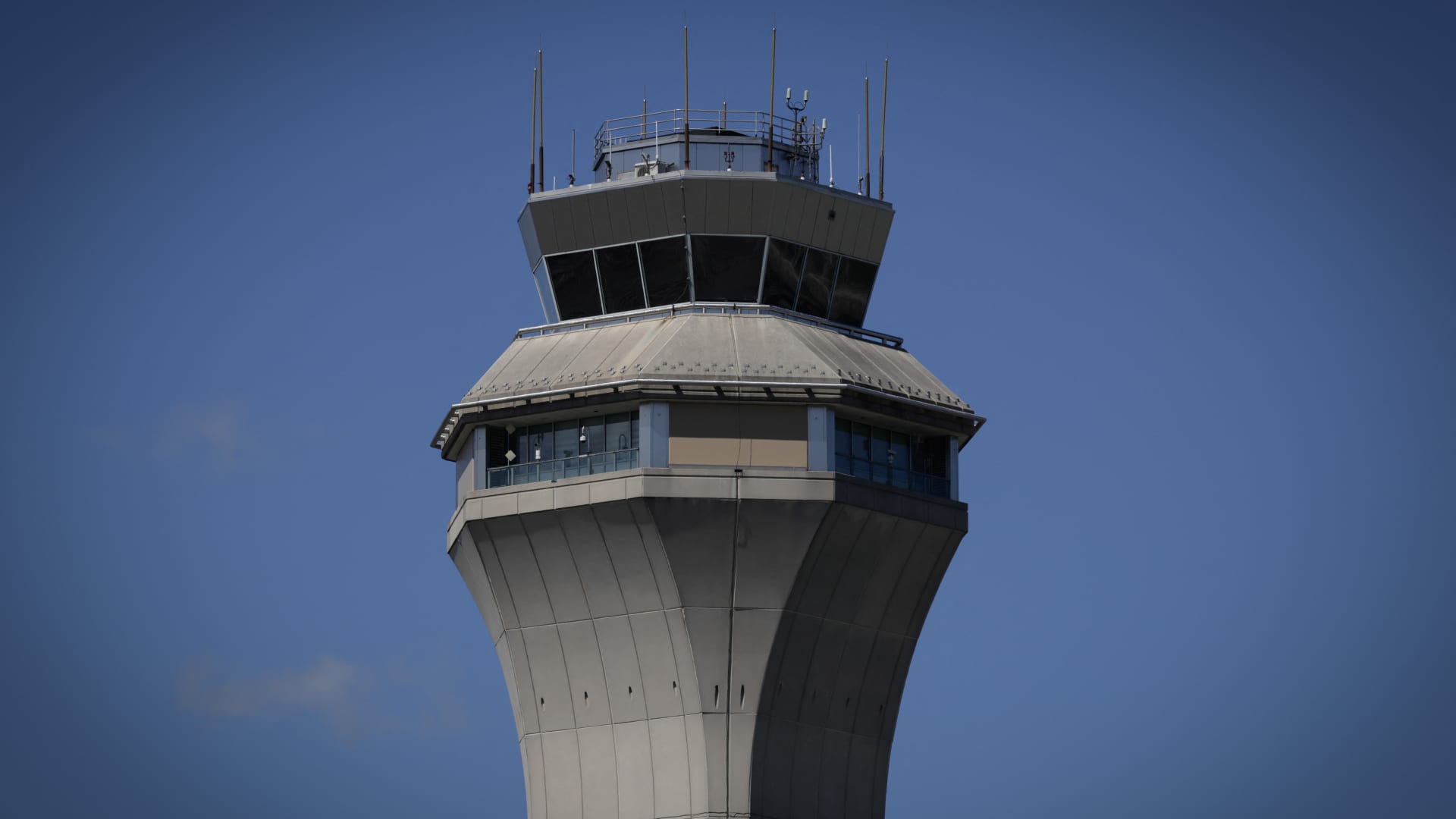Global Trends and Politics
Eli Lilly Sues Strive and Empower over Compounded Tirzepatide

Lilly Sues Pharmacies for Compounding Zepbound and Mounjaro
Lawsuit Claims Pharmacies are Skirting FDA Ban and Luring Patients Away from FDA-Approved Treatments
Eli Lilly is suing two pharmacies, Strive Pharmacy and Empower Pharmacy, for compounding Zepbound and Mounjaro, claiming that the companies are falsely marketing their products as personalized versions of the drugs. The lawsuit alleges that these claims are turning people towards compounded drugs and away from Lilly’s FDA-approved treatments.
Background on Compounding Pharmacies and FDA Regulations
Compounding pharmacies and outsourcing facilities were largely supposed to stop making their own versions of tirzepatide, the active ingredient in Lilly’s weight-loss drug Zepbound and diabetes treatment Mounjaro, last month after the FDA determined the branded versions were no longer in shortage. Some continued compounding, tweaking the dosages and combining them with vitamins, distinctions that make them different from Lilly’s drugs and potentially allow them to skirt the FDA’s ban.
Lilly’s Allegations
Lilly argues that Strive and Empower are merely mass producing altered versions of tirzepatide rather than personalizing them. Branded drugs are allowed to be compounded at large scale when they’re in shortage. Outside of that, custom versions can be made for unique situations, like if a person is allergic to an ingredient or can’t take the form of the drug it’s normally sold in.
Reactions from Pharmacies and Telehealth Sites
Strive and Empower have responded to the lawsuit, with Strive calling Lilly’s lawsuit a classic example of Big Pharma overstepping legitimate regulations to prioritize its own interests. Empower, on the other hand, stated that restricting access to personalized alternatives to commercial drugs is not in the best interest of patients. Telehealth sites like Mochi Health and Lavender Sky Health have also issued statements, with Mochi expressing confidence in the integrity of its clinical approach and Lavender Sky Health not responding to a request for comment.
Conclusion
This lawsuit will be the first test of Lilly’s ability to take on compounding pharmacies in court now that Zepbound and Mounjaro are off the FDA’s shortage list. The outcome of this case will provide a roadmap for other pharmaceutical companies, such as Novo Nordisk, whose drugs can also be compounded after the end of May.
FAQs
Q: What is compounding?
A: Compounding is the process of customizing a drug to meet an individual patient’s needs.
Q: Why is Lilly suing Strive and Empower?
A: Lilly is suing Strive and Empower for allegedly skirting the FDA’s ban on compounding and luring patients away from FDA-approved treatments.
Q: What is the FDA’s stance on compounding?
A: The FDA has determined that branded versions of tirzepatide are no longer in shortage, and therefore, compounding pharmacies and outsourcing facilities are no longer allowed to make their own versions of the drug.
Global Trends and Politics
Boeing Reaches Deal with DOJ to Avoid Prosecution Over 737 Max Crashes

Introduction to the Boeing 737 Max Crashes
Ethiopian Federal policemen stand at the scene of the Ethiopian Airlines Flight ET 302 plane crash, near the town of Bishoftu, southeast of Addis Ababa, Ethiopia March 11, 2019.
The U.S. Justice Department said Friday that it has reached a deal with Boeing to avoid prosecution over two crashes of the plane maker’s 737 Max that killed 346 people.
The Non-Prosecution Agreement
The so-called non-prosecution agreement would allow Boeing, a major military contractor and top U.S. exporter, to avoid being labeled a felon. The decision means Boeing won’t face trial as scheduled next month, as crash victims’ family members have urged for years.
The Department of Justice met with crash victims’ family members last week to discuss the potential deal.
Terms of the Agreement
In a court filing on Friday the DOJ said it "is the Government’s judgment that the Agreement is a fair and just resolution that serves the public interest."
The agreement "guarantees further accountability and substantial benefits from Boeing immediately, while avoiding the uncertainty and litigation risk presented by proceeding to trial."
The DOJ said it intends to file a motion to dismiss the case once the "agreement in principle" is finalized, by no later than the end of next week.
Under the agreement, Boeing will have to "pay or invest" more than $1.1 billion, the DOJ said in its filing in federal court in Texas on Friday, including a $487.2 million criminal fine, though $243.6 million it already paid in an earlier agreement would be credited. It also includes $444.5 million for a new fund for crash victims, and $445 million more on compliance, safety and quality programs.
Background of the Crashes
The company has been trying for years to put the two crashes of its best-selling Max planes — a Lion Air flight in October 2018 and an Ethiopian Airlines flight less than five months later — behind it. The Maxes were grounded worldwide for nearly two years after the second crash, a pause that gave rival Airbus a head start to recover from the Covid pandemic.
But families of the crash victims have criticized previous agreements as sweetheart deals for Boeing, called for more accountability from the company and said its executives should stand trial. In 2022, a former chief technical pilot for Boeing was acquitted on fraud charges tied to the Max’s development.
Previous Settlements
The aerospace giant reached a settlement in 2021 in the final days of the first Trump administration that shielded it from prosecution for three years.
Under that deal, Boeing agreed to pay a $2.51 billion fine to avoid prosecution. That included a $243.6 million criminal penalty, a $500 million fund for crash victims family members and $1.77 billion for its airline customers.
That 2021 settlement was set to expire two days after a door panel blew out of a nearly new 737 Max 9 operated by Alaska Airlines on Jan. 5, 2024, after the aircraft left Boeing’s factory without key bolts installed.
Recent Developments
But last year, U.S. prosecutors said Boeing violated the 2021 settlement, accusing the company of failing to set up and enforce a compliance and ethics program to detect violations of U.S. fraud laws.
Last July, toward the end of the Biden administration, Boeing agreed to plead guilty to the criminal fraud charge in a new settlement. A federal judge later rejected the plea deal, citing concerns with a diversity, equity and inclusion requirements for choosing a corporate monitor.
Under that 2024 deal, Boeing would have faced a fine of up to $487.2 million, though the Justice Department recommended that the court credit Boeing with half that amount it paid under the previous agreement.
Conclusion
The U.S. Justice Department’s decision to reach a non-prosecution agreement with Boeing has sparked controversy among the families of the crash victims. While the agreement provides some accountability and compensation, many feel that it does not go far enough in holding the company responsible for its actions. The case highlights the complex and often contentious relationship between government regulators and large corporations.
FAQs
Q: What is the non-prosecution agreement between the US Justice Department and Boeing?
A: The non-prosecution agreement is a deal that allows Boeing to avoid prosecution over two crashes of its 737 Max planes that killed 346 people.
Q: How much will Boeing have to pay under the agreement?
A: Boeing will have to pay or invest more than $1.1 billion, including a $487.2 million criminal fine, $444.5 million for a new fund for crash victims, and $445 million more on compliance, safety and quality programs.
Q: What were the circumstances surrounding the two crashes?
A: The crashes occurred in October 2018 and March 2019, involving a Lion Air flight and an Ethiopian Airlines flight, respectively. The Maxes were grounded worldwide for nearly two years after the second crash.
Q: Have there been any previous settlements or agreements between Boeing and the US government?
A: Yes, Boeing reached a settlement in 2021 that shielded it from prosecution for three years, and agreed to pay a $2.51 billion fine to avoid prosecution.
Q: What is the reaction of the families of the crash victims to the non-prosecution agreement?
A: Many families of the crash victims have criticized the agreement as a sweetheart deal for Boeing and have called for more accountability from the company and its executives.
Global Trends and Politics
Insurers Prepare for Above-Average Hurricane Season

Government scientists on Thursday released a forecast for the 2025 hurricane season, predicting a 60% chance it will be an above-average season. The National Oceanic and Atmospheric Administration, or NOAA, predicts this season will bring 13 to 19 named storms with winds 39 miles per hour or higher.
Predictions and Preparations
It predicts six to 10 of the forecasted storms will grow to hurricane status, and three to five will become major hurricanes. Laura Grimm, the acting administrator of the NOAA and a marine scientist, sidestepped specific questions about how budget cuts aimed at climate science would affect the organization’s work and highlighted the vital work of the agency to help communities prepare and save lives.
NOAA’s Priorities
“Weather prediction, modeling and protecting human lives and property is our top priority. So we are fully staffed at the hurricane center, and we definitely are ready to go,” Grimm said in a news conference held in Jefferson Parish, Louisiana, to commemorate 20 years since Hurricane Katrina. Grimm also pointed out, thanks to improvements in the science and technology over the last 20 years, that NOAA’s hurricane prediction was spot-on last year.
Recent Losses
Hurricanes Helene and Milton caused more than $37 billion in insured losses in 2024, according to a report from Aon. Despite those losses, the U.S. property casualty insurance industry saw its best underwriting performance since 2013, according to a report from the Insurance Information Institute and Milliman.
Challenges Facing the Insurance Industry
But the report concludes that January’s devastating wildfires in California and economic challenges related to tariffs could dampen the industry’s results in 2025. Insurers and reinsurers are collectively facing more than $50 billion in losses from the Los Angeles wildfires. The Midwest has also suffered outbreaks of severe thunderstorms with damaging hail, wind and tornadoes this spring.
Increasing Losses
The Storm Prediction Center had tallied 883 local tornado reports this year as of Monday, 35% higher than average for this time of year. Aon said the severe convective storms have caused an estimated $10 billion in insured losses in the first quarter. A storm over three days in May added another estimated $7 billion to insurers’ tally.
Existential Threat
The last 10 years have averaged more than $33 billion annually in insured losses, a 90% increase from the previous decade. It’s an existential threat to the insurance industry and its ability to provide affordable insurance to homeowners, according to Bill Clark CEO of Demex, a reinsurance analytics group. And the problem is getting worse, not better.
Causes of Skyrocketing Losses
Whether hurricanes, wildfires or severe storms, Aon blames the skyrocketing losses on growing exposure, meaning more people are living where climate risks are higher and the cost of their homes, cars and all the stuff inside is more expensive.
Mitigation Efforts
The insurance industry is working to push state and local efforts to build resiliency and improve mitigation efforts — meaning better building codes, public works projects that protect homes and properties, and tough standards on defensible spaces around buildings, for instance. The president of Jefferson County Parish, Cynthia Lee Sheng, pointed to all the efforts made in the 20 years since Hurricane Katrina hit Louisiana, killing 1,392 people in 2005.
Savings from Mitigation
The government overhauled levees, flood walls, and pumping stations. “It’s estimated that $13 is saved for every $1 spent on mitigation efforts,” Sheng said. “Hurricane Katrina also changed the face of disaster recovery. Key agencies have learned to work together to provide assistance, coordinate efforts and ensure efficient response.”
Conclusion
In conclusion, the 2025 hurricane season is expected to be above-average, with a significant number of named storms and hurricanes predicted. The insurance industry is facing significant challenges due to increasing losses from natural disasters, but mitigation efforts can help reduce the impact of these events.
FAQs
Q: What is the predicted number of named storms for the 2025 hurricane season?
A: The National Oceanic and Atmospheric Administration (NOAA) predicts 13 to 19 named storms with winds 39 miles per hour or higher.
Q: How many hurricanes are expected to occur during the 2025 season?
A: NOAA predicts six to 10 of the forecasted storms will grow to hurricane status, and three to five will become major hurricanes.
Q: What is the main cause of the increasing losses from natural disasters?
A: Aon blames the skyrocketing losses on growing exposure, meaning more people are living where climate risks are higher and the cost of their homes, cars and all the stuff inside is more expensive.
Q: What is the estimated savings from mitigation efforts?
A: It’s estimated that $13 is saved for every $1 spent on mitigation efforts.
Global Trends and Politics
American Airlines CFO Says Some Travelers Are Avoiding Newark Airport

The FAA Air Traffic Control tower at Newark Liberty International Airport in Newark, New Jersey has been experiencing disruptions. American Airlines chief financial officer, Devon May, stated that some travelers are avoiding Newark Liberty International Airport for other options in the area after a spate of recent disruptions, but cautioned that the impact is “modest.”
Causes of Disruptions
The Federal Aviation Administration this week ordered airlines to temporarily cut flights at Newark to relieve congestion there as carriers grapple with a shortage of air traffic controllers, equipment outages, and runway construction at the New Jersey airport. Bad weather has also added to disruptions in recent weeks.
Impact on Airlines
American has a roughly 4% market share at Newark, according to the most recent data from the Port Authority of New York and New Jersey, which operates the airport along with LaGuardia Airport and John F. Kennedy International Airport, both in Queens, New York. “There’s something happening there, but I think it’s relatively modest when you think of the broader network,” American’s May said. United Airlines dwarfs all other airlines at Newark with its nearly 70% share. That carrier had proactively announced cuts of 35 flights a day earlier this month to put more slack in the system.
Efforts to Overhaul Air Traffic Control System
Earlier this month, Transportation Secretary Sean Duffy said the U.S. will spend billions to overhaul the aging U.S. air traffic control system. President Donald Trump’s tax bill includes $12.5 billion for air traffic control modernization and staffing.
Conclusion
In conclusion, recent flight disruptions at Newark Liberty International Airport have led to some travelers avoiding the airport in favor of other options in the area. However, the impact on airlines is relatively modest. Efforts are being made to overhaul the aging U.S. air traffic control system, which should help to alleviate congestion and reduce disruptions in the future.
FAQs
Q: What is causing flight disruptions at Newark Liberty International Airport?
A: Flight disruptions at Newark Liberty International Airport are being caused by a shortage of air traffic controllers, equipment outages, runway construction, and bad weather.
Q: How are airlines being affected by the disruptions?
A: Airlines are being affected by the disruptions, with some experiencing a modest impact on their operations. United Airlines, which has a nearly 70% market share at Newark, has proactively cut 35 flights a day to put more slack in the system.
Q: What is being done to address the issue?
A: The U.S. is planning to spend billions to overhaul the aging U.S. air traffic control system, with $12.5 billion allocated for air traffic control modernization and staffing.
Q: Are travelers avoiding Newark Liberty International Airport?
A: Yes, some travelers are avoiding Newark Liberty International Airport in favor of other options in the area, such as LaGuardia, JFK, and Philadelphia airports.
-

 Career Advice5 months ago
Career Advice5 months agoInterview with Dr. Kristy K. Taylor, WORxK Global News Magazine Founder
-

 Diversity and Inclusion (DEIA)5 months ago
Diversity and Inclusion (DEIA)5 months agoSarah Herrlinger Talks AirPods Pro Hearing Aid
-

 Career Advice5 months ago
Career Advice5 months agoNetWork Your Way to Success: Top Tips for Maximizing Your Professional Network
-

 Changemaker Interviews5 months ago
Changemaker Interviews5 months agoUnlocking Human Potential: Kim Groshek’s Journey to Transforming Leadership and Stress Resilience
-

 Diversity and Inclusion (DEIA)5 months ago
Diversity and Inclusion (DEIA)5 months agoThe Power of Belonging: Why Feeling Accepted Matters in the Workplace
-

 Global Trends and Politics5 months ago
Global Trends and Politics5 months agoHealth-care stocks fall after Warren PBM bill, Brian Thompson shooting
-

 Global Trends and Politics5 months ago
Global Trends and Politics5 months agoUnionization Goes Mainstream: How the Changing Workforce is Driving Demand for Collective Bargaining
-

 Training and Development5 months ago
Training and Development5 months agoLevel Up: How Upskilling Can Help You Stay Ahead of the Curve in a Rapidly Changing Industry









